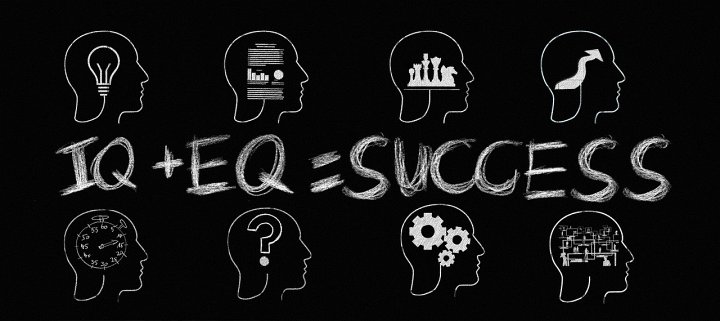Does Birth Determine Interpersonal skills?
To broaden our understanding of interpersonal competence, it is helpful to address the emotional intelligence described by Gardner.
They are part of multiple intelligences conceptualized by the author above (linguistic, musical, logical-mathematical, spatial, corporal-intrapersonal, interpersonal, kinesthetic, naturalist, and existential).
Each individual presents different levels of such intelligence, some of them being particularly developed, and others manifest with less force.
Hence, many people get curious about knowing to what extent interpersonal skills are because we’re born with them or if they can be enhanced throughout life.
This article will learn more about what interpersonal skills are as they arise and whether we can develop them or are determined by birth.
Does Birth Determine Interpersonal skills?
Initially, every human being is born with some interpersonal ability that is a consequence of the relationship with his mother. Still, we can say that they are not determined by Birth because they evolve through human interactions until the end of life.
Interpersonal Skills hold so many other subjects in it besides what they are, if you continue reading this article you will find more about how birth does not determine Interpersonal Skills.
You also get to how they are developed and a few ways you could use to approbate yours.
What are Interpersonal Skills?
According to Almeida (2009), interpersonal intelligence is based on the central capacity to understand those around us, their feelings and emotions, temperaments, motivations, and intentions to work and relate to others (e.g., negotiate, lead, etc.)
We are individual, unique beings, and our way of receiving and reacting to external stimuli are different from person to person.
Interpersonal relations develop in human interaction, where fundamental elements are co-responsible for the success or failure of relationships: communication, cooperation, respect, friendship.
Such feelings will influence interactions and, in corporate environments, the professional activities to behave developed.
For example, when a person has an initial contact with another, a first impression is generated, which relates to several elements.
The previous experience of each individual, their expectations and motivations at the time, and the actual situation of the meeting influence the first impression.
This impression may be different if there are or is not certain prejudices if there is a favorable climate for accepting differences in the other if the context is formal or informal.
Therefore, it is necessary to be aware that the impact of the other on us does not depend exclusively on the other person but that it suffers influence from our subjective elements and from the context itself.
- When the first impression is positive for both sides, there tends to be sympathy and rapprochement, facilitating interpersonal relationships and activities in common.
- However, suppose the positive impact occurs only on one side, without reciprocity.
- In that case, the relationship tends to become difficult, tense, requiring commitment from both parties to more excellent knowledge that can change that first impression.
How are Interpersonal Skills Developed?
According to Almeida, one of the ways of developing interpersonal skills is to connect with our intrapersonal.
Our connection with our intrapersonal depends on authenticity, values that we were taught, how peaceful our mother where during our pregnancy, our conscious and unconscious mind is.
However, to Gardner (the author who developed the Theory of Multiple Intelligences), each individual is born with a biological potential for each intelligence (interpersonal and intrapersonal skills are also known as intelligence).
The development of each of them depends on the context in which the individual is inserted, their expectations, and the stimulation by this medium.
3 Ways to Develop Interpersonal Skills
1. Establishing contact with other people through empathy
Psychologist E.B. Titchener first used the term empathy. It originates from the Greek term empátheia, which means “to enter into the feeling.”
Empathy is a critical concept in the development of relationships. It can be defined as the ability to identify and recognize another person’s condition, feelings, and motives.
It is the ability to recognize the concerns and interests that other people may have and embrace them.
So empathy would tend to feel what you would think if you were in the situation and circumstances experienced by someone else.
2. Dealing with conflict in a healthy and positive way
Conflicts in the work environment can exist without being negative; if they are solved, they lead to personal and professional growth.
According to experts, when we successfully resolve conflicts, we achieve some essential benefits such as:
- Increased understanding – the discussion needed to resolve the dispute expands to the knowledge of people about the situation they are living from the knowledge of other points of view;
- Increasing group cohesion – when a conflict is well resolved, the members of a team tend to develop mutual solid respect in addition to a trust renewed in their capacity to work together;
- Increased self-knowledge – conflicts make us examine personal goals with more care and focus on our importance.
3. Inclusion in Social Groups
Abraham Harold Maslow was an American psychologist known for Maslow’s proposed hierarchy of needs.
In 1946 he conducted a survey in Connecticut in an area of conflict between the black and Jewish communities. He concluded that bringing together groups of people was one of the best ways to expose conflict areas.
Those groups were called T-groups (the «T» means training, that is, formation), had as their underlying theory the fact that behavioral patterns had to be «thawed» before being altered and then «frozen» again.
When a person begins to participate in a group, there is an internal basis of differences that encompass knowledge, information, opinion, previous experience, tastes, beliefs, values, behavioral style.
Participating on a group brings inevitable differences of perceptions, thoughts, and feelings about shared situations.
The way these differences are viewed and treated – how we manage them in our personal and professional lives-determines how we relate to group members, co-workers, superiors, and subordinates.
Conclusion
When we are born, we receive a small part of all intelligence. As we develop our interests, some will be more developed than others, so interpersonal skills are not determined by birth because we can improve until death.
Reference and Further Reading
AcethePresentation. AmadeBai, Emidio. Top 15 Social and Interpersonal skills at Work.
GONZALEZ, Jennifer. The Cult of Pedagogy Podcast. Google Podcast










